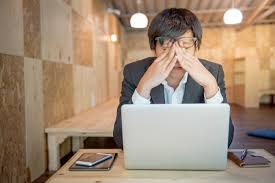Many of us with kids started to see some push-back with Zoom after a certain point in the shelter-at-home orders. Suddenly the novelty wore off and they no longer wanted to participate in Zoom sessions. You might have noticed it yourself – after a Zoom meeting or two, you felt depleted or just felt something was “off,” but weren’t sure why. There are reasons for that “Zoom burnout.” It’s not just you.
Video calls require more focus than an in-person meeting. You’re not getting all the typical cues you usually would, and so you’re working harder to pay attention to body language, tone and pitch of voice, and all of this takes more energy. There are also uncomfortable silences that happen on a Zoom call that feel more natural in an in-person conversation. You’re also keenly aware of your physical appearance and how you look to others on a video call because you’re watching yourself.
All of this to say: Zoom can be overwhelming – for kids, for adults, for everyone. But it has become part of our pandemic-era workplace and school culture, so for now it’s what we have. Even Zoom chats with friends can be stressful – which defeats the purpose of connecting with others!
There are ways to help you mitigate the Zoom exhaustion. Read on to find out how to reduce Zoom burnout.
If/when possible, try to limit Zoom calls. For instance, does every single phone call really need to be a Zoom call? Or can they be regular phone calls? Is Zoom the most efficient mode of communication, or are there other ways information can be shared? There are lots of ways to share information: shared drives and files, for instance.
Ask about whether having the camera on is mandatory. Having the camera on can be stressful. If possible, keep the camera off, or sit to the side of it so you’re less distracted by it.
Set boundaries and take breaks. In between Zoom calls, get outside. Take breaks. Do some stretches, get a snack, do something besides sitting at your computer. If you’re moving from a business Zoom call to a personal Zoom call, make a transition from the work day to personal time.
Be gentle with yourself. None of this is normal. None of us are used to this. Everyone is doing the best they can right now, and you’re doing great. After your workday, do something just for you, whether that’s watching your favorite television show, listening to your favorite music, or sitting outside on your porch or stoop – take some time to relax.
While Dissertation Editor can’t help with your Zoom calls, we do offer a range of professional and academic services to help you reach your goals. Contact us today to learn more about the tools we offer and how we can be of assistance!
< Preparing for Graduate School (Yes, even remotely!) Self-Publishing 101 >